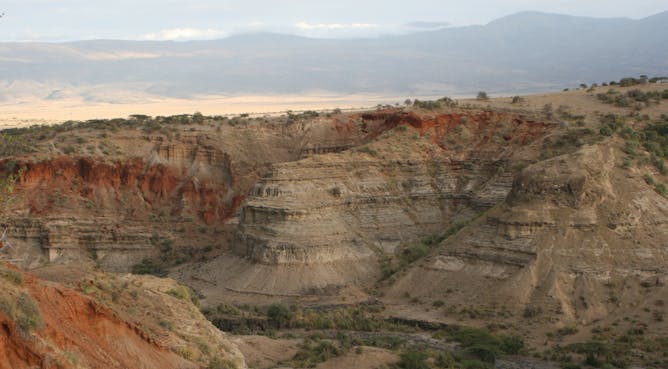
Nearly a century ago, archaeologists started to shift the focus of human origins research from Europe to Africa’s ‘cradles of humankind’ like Oldupai (Olduvai) Gorge in Tanzania. What will the next big shifts be?
Manuel Domínguez-Rodrigo
Elizabeth Sawchuk, Stony Brook University (The State University of New York); Mary Prendergast, Saint Louis University – Madrid
20 years ago, who could predict how much more researchers would know today about the human past – let alone what they could learn from a thimble of dirt, a scrape of dental plaque, or satellites in space.
|
Health + Medicine
|
-
Connie Rogers, Pennsylvania State University; Darrell Cockburn, Pennsylvania State University
For your 2020 New Year's resolutions, think about keeping the microbes that live inside your gut healthy. Look after them and they'll look after you.
-
Libby Richards, Purdue University
Getting in better shape is one of Americans' top resolutions for the new year, but many people give up after six months. Here are some suggestions to make exercise enjoyable so you can stick with it.
|
|
|
|
Politics + Society
|
-
Paula Armendariz Miranda, University of Minnesota
All those democracy protests in South America may be having some unintended consequences.
-
Daniel R. Birdsong, University of Dayton
If you want to understand the American public, don't look at national poll numbers.
-
Steffen W. Schmidt, Iowa State University
How did a small, rural state become so influential in the presidential nominating process? A political scientist traces the development of the first-in-the-nation Iowa caucus.
|
|
|
|
|
|
|
|
|
|
From our International Editions
|
-
Martina Svensson, Lund University
Cross-country skiers are 50% less likely to develop depression than the general population.
-
Benjamin Kooyman, Australian National University
Mr Bean made its television debut on January 1 1990. Thirty years on, the pilot episode still captures all that is great about Rowan Atkinson's character.
-
Sara Shneiderman, University of British Columbia; Sahana Ghosh, Brown University
India has been working to expel or repress Muslim minorities. Nearly two million residents of India’s eastern state of Assam are at risk of losing citizenship.
|
|
Today’s chart |
-
  |
Daniel R. Birdsong
University of Dayton
|
| |